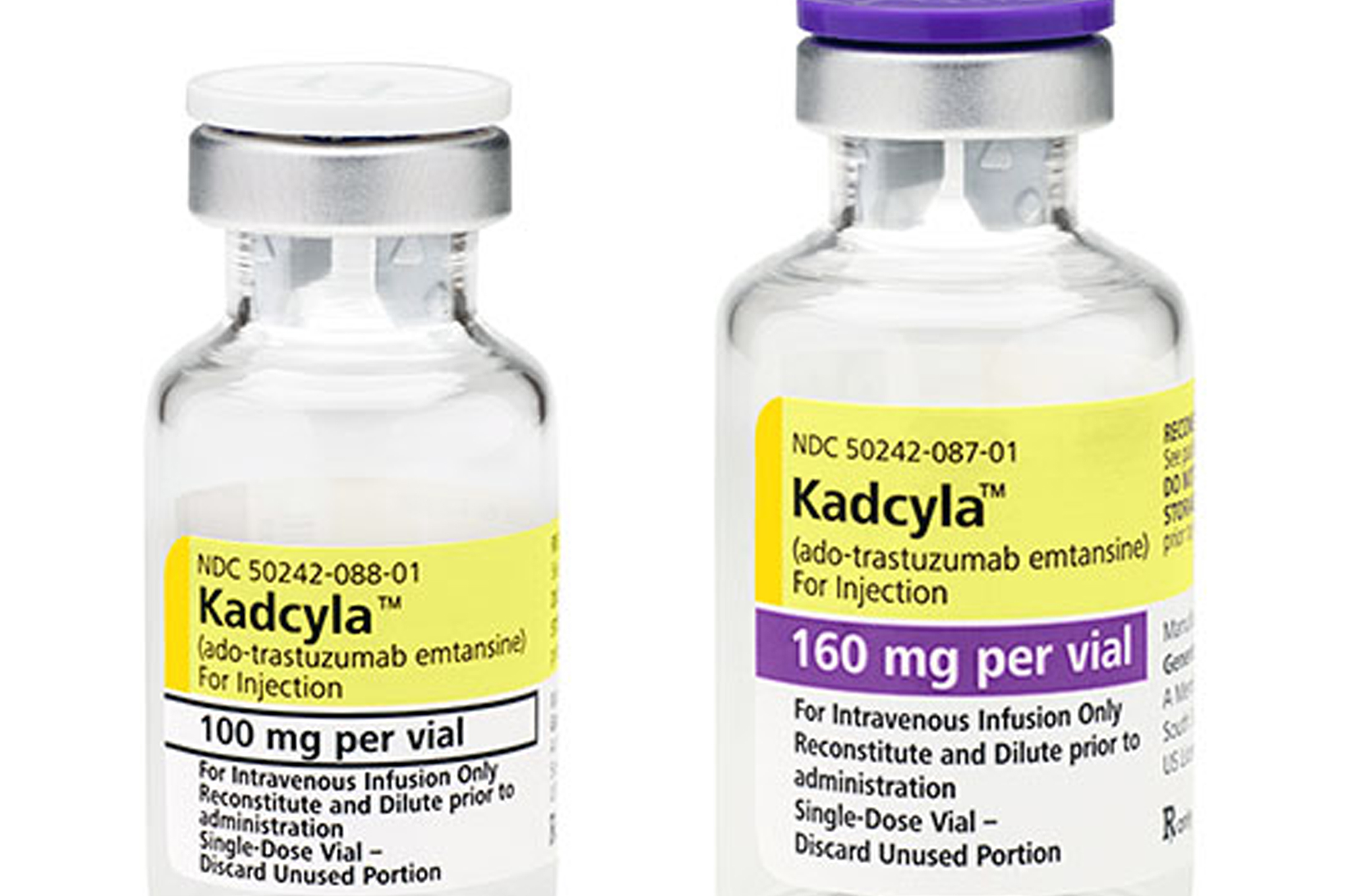Roche challenges NICE on Kadcyla and ignoring pricing deal

The battle of wills between Roche and NICE over the breast cancer drug Kadcyla has entered a new phase – and one that could have an impact for the whole UK industry.
Yesterday saw Roche mount its appeal against NICE's decision not to recommend Kadcyla, which the NHS body says is too expensive for the benefits it offers patients beyond existing treatments.
Kadcyla (trastuzumab emtansine) is a 'smart bomb' drug combining Roche's existing treatment Herceptin with a chemotherapy which targets only cancer cells, and not healthy tissue. It is currently only licensed for use in patients with advanced cancer, and once other treatments fail.
The drug offers six months extra life compared to existing alternatives on average, but carries a high cost, £90,000 per patient. Roche say it had offered a lower price (which remains confidential) in negotiations, but this was also rejected by NICE.
NICE rejected Kadcyla in April this year, and what has followed has been a protracted war of words over the decision, in which both sides accused each other of being inflexible.
Roche had its chance to formally challenge the decision yesterday, and took a new approach in its appeal: it is claiming that NICE should have taken into account the newly updated UK pricing agreement, the PPRS.
The appeal could set a precedent for NICE, and is likely to be a turning point for the new pricing system – good or bad. If NICE is made to take it into account, the PPRS will be seen as favourable for the industry. If not, it could be branded a failure if NICE and other bodies can ignore it.
Introduced in January this year, the new PPRS guarantees a limit to the NHS medicines budget, after which point any 'overspend' is paid back by the pharma industry via rebates.
UK pharmaceutical companies had hoped that the PPRS deal would allow faster and more widespread uptake of new medicines, but NICE and other decision-making bodies do not seem to be taking this pharma 'underwriting' of the NHS drugs budget into account.
If NICE did take the PPRS deal into account, this would lift the cost burden of Kadcyla from the NHS - as it would not add extra cost above the agreed budget limit. However it seems NICE, and budget-holding bodies like NHS England view the PPRS as 'too good to be true' and are controlling drug spending regardless.
Roche says that ignoring the PPRS deal is 'procedurally unfair' - one of the grounds on which NICE decisions can be challenged.
In its submission to NICE, Roche said: "The introduction of the 2014 PPRS represents a fundamental change in the control of prices of branded NHS medicines in the UK, and one that Roche firmly believes should be reflected in NICE's appraisal methodology."
During the Kadcyla appraisal, NICE leaders advised its appraisal committee that their 'remits and methods' had not been changed by the new PPRS agreement, which meant that they would not have to take the PPRS into account.
Roche say this reasoning is "inadequate and does not explain the conclusion reached."
NICE says the wait for the appeal board's decision depends on how it rules, but would not forecast a likely timeline. However if the original ruling is upheld, the announcement could be made in a matter of weeks. If it agrees with Roche's appeal, the panel's ruling will take longer to be finalised.
Despite the row with NICE, patients in England can access the drug through the Cancer Drugs Fund (CDF)if their doctors apply for funding.
Scotland says no
Meanwhile, NICE's equivalent in Scotland, the SMC has also just rejected Kadcyla.
The SMC concluded that Roche's justification of the treatment's cost in relation to its health benefits was not sufficient to gain acceptance by SMC. The Scottish panel said its ruling takes account of the views from a Patient and Clinician Engagement (PACE) meeting.
Unlike in England, there is no Cancer Drugs Fund in Scotland, which Roche points out will mean that many are set to miss out completely. The company also points out that the CDF gave Kadcyla one of the highest ratings on its clinical value scale, which it says is a recognition of being a breakthrough for patients.
Jayson Dallas, Roche General Manager says, "Roche is disappointed that the SMC cannot recommend Kadcyla for patients in Scotland. Kadcyla is an innovative medicine, and the technology within it means that powerful chemotherapy, which cannot be used on its own, can be delivered directly to cancer cells, resulting in significant benefits for patients.
The row over Kadcyla is just one reason why both NICE and the UK pharma industry body the ABPI are calling for a comprehensive re-think to the drug appraisal and market access system in the UK.
The Department of Health has recently announced that the CDF will continue until at least 2016, but its methods will be reviewed, and is likely to take a harder line on approving funding for drugs.
Meanwhile, last month NICE's chief executive Sir Andrew Dillon put forward plans for an office for innovation inside NICE, and a 'flight path' for companies through stages of the development, evaluation and adoption of their products into the NHS.










